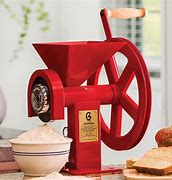So, went to check out the "Bishop's Storehouse" today in Worcester. Interesting to say the least. Expected nerdy Mormons working there, but they're nice and helpful.
Strange selection of foods. I got apple slices, pinto beans, potato flakes, carrots, and "hard red wheat". Those are #10 cans, but are pretty light for the most part. Those are all 30 year storage, except 10 years for the carrots. Saw a couple guys there, who I asked what they were going to do with all the wheat they bought (like 10 25 pound bags). They said they have to grind it to make wheat flour. Sounds like a lot of work. How long does regular flour last? Who uses flour right now? How much flour would one need if that need ever became a reality? Where are people putting all this stuff? Maybe I'm too much of a newbie at this planning stuff, but I was thinking just buying extra canned soups, beans, tomato products, instant mashed potatoes, and stuff would do it, but some people really go for the deep dive. In the end, I'll have plenty of apples, peaches, and eggs from fresh sources. Same with potatoes, tomatoes, lettuce, root crops and other produce from the garden. Coming up short on meat (other than chicken maybe), unless I become successful at deer hunting, or more serious about rabbits and squirrels. Fishing is also good there. No pasta or bread unless I either buy flour (or "wheat"), or grow it. Then I guess I'd need a mill or something to make flour. Hey, people say to cut down on bread and carb stuff anyhow, so there's that. Thanks for listening.






